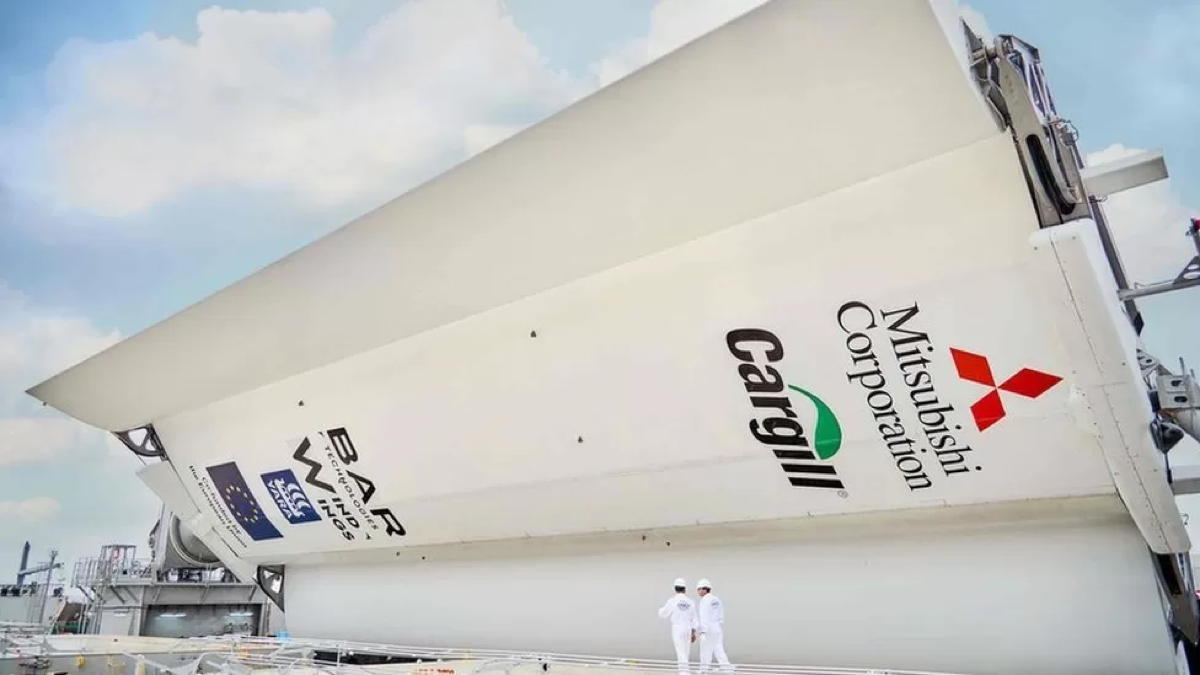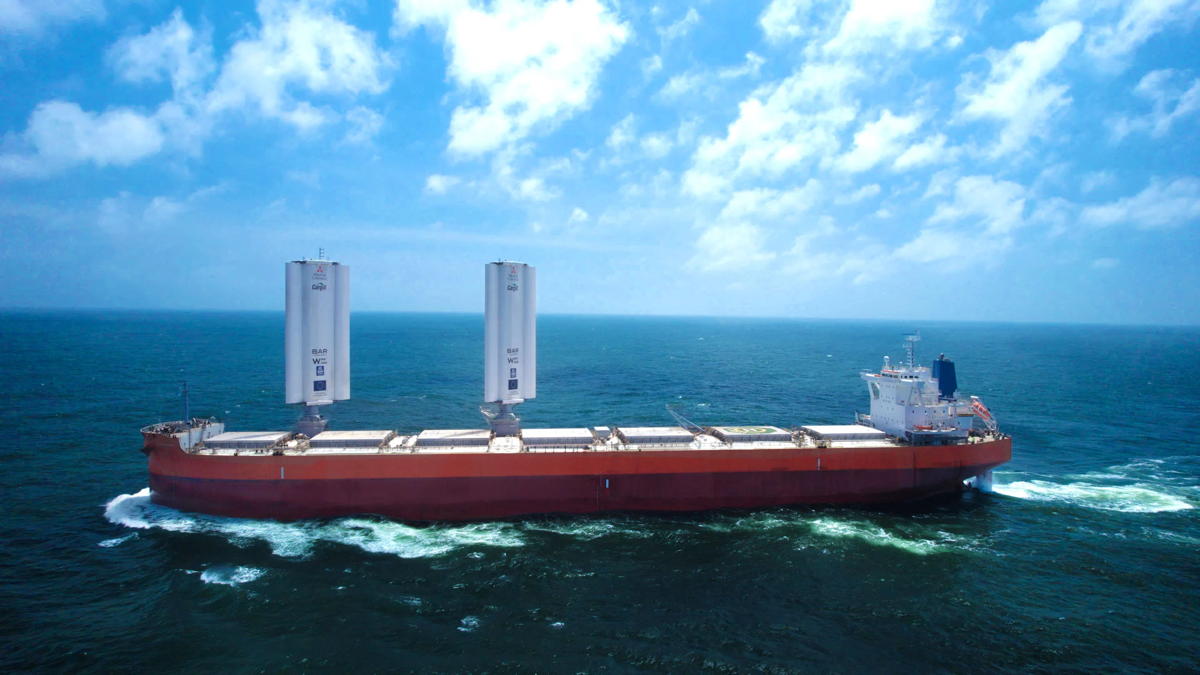A Mitsubishi seagoing cargo vessel has set out on its maiden voyage after being fitted with two giant wind-propulsion “wings” designed by British firm BAR Technologies.
The 37.5 metre WindWings sails are projected to be able to cut cargo vessels’ fuel expenditure by up to 30 percent on new-build vessels as the shipping industry seeks to reduce its carbon emissions.
Cargill has chartered Mitsubishi’s Pyxis Ocean and plans to roll out the technology more broadly.
Cargill’s ocean transportation business chief Jan Dieleman said the maritime industry was on a “journey to decarbonise” that would not be “easy”.

Fuel efficiency
“A technology like WindWings doesn’t come without risk,” he said, adding that the company intended to “invest, take those risks and be transparent with our learnings”.
In July the shipping industry agreed a target of reducing carbon emissions to net-zero “by or around 2050”.
Portsmouth-based BAR Technologies, spun out of Sir Ben Ainslie’s 2017 America’s Cup racing team, built the sails in China with Yara Marine Technologies, as the cost of imported steel made constructing them in the UK prohibitively expensive.
The sails were installed at the Cosco shipyard in Shanghai and the Pyxis Ocean has now embarked on a six-week voyage to Brazil.
‘Innovation must come to the fore’
BAR Technologies and Yara Marine said they were planning on building hundreds of WindWings over the next four years for retrofitted vessels, while BAR is also researching improved hydrodynamic hull shapes for newbuild ships.
BAR chief executive John Cooper said that in order to reduce CO2 emissions “innovation must come to the fore”.
“Wind is a near marginal cost-free fuel and the opportunity for reducing emissions, alongside significant efficiency gains in vessel operating costs, is substantial,” he said.
The WindWinds project was co-funded by the European Union as part of the CHEK Horizon 2020 initiative to reduce shipping emissions.






